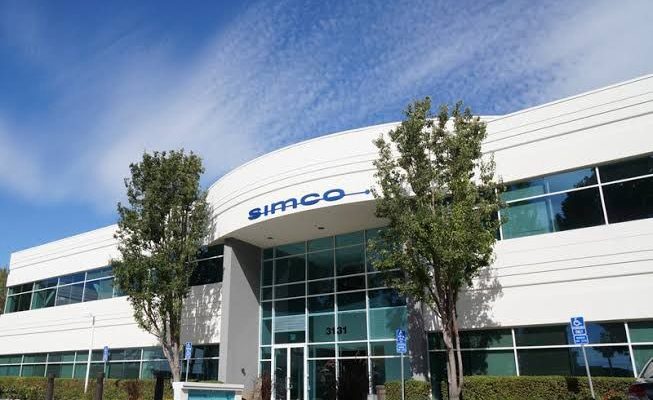In the world of manufacturing and industrial maintenance, precision is not just a preference—it’s a necessity. When fasteners are tightened too little, they can loosen over time, potentially causing catastrophic failures. When tightened too much, they can strip threads, damage components, or even break. This delicate balance is why torque calibration near meservices have become essential for companies serious about quality, safety, and compliance.
The Critical Importance of Accurate Torque
Torque measurement affects virtually every industry that uses fasteners—from automotive manufacturing to aerospace, from medical device assembly to infrastructure construction. When a surgeon implants a medical device, when a mechanic repairs a commercial aircraft, or when a technician assembles critical infrastructure components, the precise application of torque can make the difference between safe operation and catastrophic failure.
Consider the aerospace industry, where a single incorrectly torqued bolt could potentially lead to component failure during flight. Or in medical device manufacturing, where improperly secured components might fail inside a patient’s body. The stakes couldn’t be higher.
The Convenience Factor: Why “Near Me” Matters
While many calibration services exist, the accessibility of torque calibration near me provides several distinct advantages:
- Minimized Downtime: When tools are sent to distant calibration labs, they can be out of commission for days or weeks. Local services often offer same-day or next-day turnaround, keeping your operations running smoothly.
- Reduced Shipping Risks: Precision tools can be damaged during shipping. Local services eliminate or reduce this risk by enabling in-person drop-off and pickup.
- Emergency Service: When critical tools suddenly need calibration, local providers can often accommodate emergency requests, preventing costly production delays.
- Relationship Building: Working with local calibration experts allows for the development of ongoing professional relationships. These experts come to understand your specific needs and can provide tailored advice and services.
The True Cost of Skipping Calibration
Some companies view torque calibration as an unnecessary expense, but this perspective fails to account for the true cost of using uncalibrated tools:
Safety Risks: Improperly torqued fasteners can lead to equipment failures that endanger workers and the public.
Quality Issues: Products assembled with inaccurate torque may fail prematurely, damaging your company’s reputation.
Regulatory Non-Compliance: Many industries have strict requirements for tool calibration. Failing to meet these requirements can result in fines, production shutdowns, or liability in case of accidents.
Warranty Invalidation: Equipment manufacturers often require proof of proper maintenance, including calibration records, to honor warranties.
What to Expect from Professional Torque Calibration
When you seek out torque calibration near me, a quality service provider will offer:
Accredited Calibration: Look for labs accredited to ISO/IEC 17025, which demonstrates they meet international standards for technical competence.
Comprehensive Documentation: You should receive detailed certificates showing before and after measurements, traceability to national standards, and measurement uncertainty.
Adjustment Services: If your tools are found to be out of tolerance, the calibration service should be able to adjust them back to manufacturer specifications.
Consultation: Experts should be able to advise on calibration frequency based on your usage patterns and industry requirements.
How Often Should You Calibrate?
Calibration frequency depends on several factors:
Tool Usage: Tools used daily require more frequent calibration than those used occasionally.
Working Environment: Harsh environments with extreme temperatures, vibration, or contaminants can affect calibration stability.
Precision Requirements: Applications requiring extreme precision may need more frequent calibration.
Industry Standards: Some industries have specific requirements for calibration intervals.
Most manufacturers recommend annual calibration at minimum, but many industries require more frequent verification—some as often as before each use for critical applications.
Choosing the Right Local Calibration Partner
When selecting a torque calibration near me service, consider these factors:
Accreditation: Verify that the lab maintains appropriate accreditations, particularly ISO/IEC 17025.
Range and Capability: Ensure they can calibrate the full range of your torque tools, from small screwdrivers to large torque wrenches.
Turnaround Time: Ask about their standard and expedited service options.
On-Site Services: For large operations, some providers offer on-site calibration to minimize downtime.
Experience and Reputation: Look for providers with experience in your specific industry.
Beyond Basic Calibration
Advanced torque calibration near me services may offer additional value through:
Tool Management Programs: These programs track your calibration schedules and automatically notify you when recalibration is due.
Training Services: Some providers offer training for your team on proper tool usage and maintenance.
Preventive Maintenance: Comprehensive services often include cleaning, lubrication, and parts replacement to extend tool life.
Custom Solutions: For specialized applications, quality providers can develop custom calibration procedures.
The Future of Torque Calibration
The field of torque calibration continues to evolve. Modern innovations include:
Digital Documentation: Electronic certificates and records that integrate with quality management systems.
Remote Monitoring: Systems that track tool usage and predict when calibration will be needed.
Improved Accuracy: New calibration technologies that reduce measurement uncertainty.
Portable Calibration Systems: Advanced portable systems that bring laboratory-grade calibration capabilities directly to work sites.
By prioritizing regular torque calibration near me, companies demonstrate their commitment to quality, safety, and excellence. In industries where precision matters, this commitment isn’t just good practice—it’s essential for success and safety.
As manufacturing processes become increasingly precise and regulatory requirements more stringent, the importance of accurate torque application will only grow. Companies that establish strong relationships with local calibration providers position themselves for continued compliance and operational excellence in this evolving landscape.
Remember that while calibration represents a direct cost, the indirect costs of using uncalibrated tools—including potential safety incidents, quality issues, and regulatory non-compliance—are far greater. When viewed as an investment rather than an expense, regular torque calibration delivers exceptional returns in safety, quality, and peace of mind.



